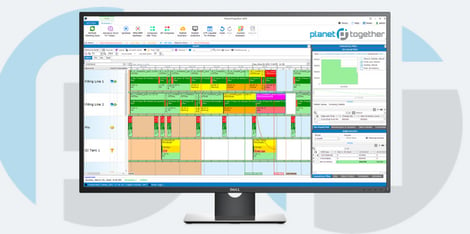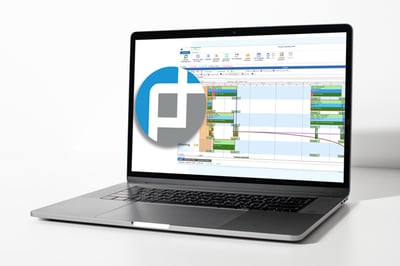
Managing Production Bottlenecks Effectively in Medical Manufacturing
In the medical manufacturing industry, supply chain managers face unique challenges—from strict regulatory requirements to fluctuating demands for life-saving products. Among these, managing production bottlenecks is a critical issue that directly impacts efficiency, cost, and the ability to meet market demands. Identifying, analyzing, and resolving these bottlenecks can be the difference between success and failure in this highly competitive industry.
One of the most promising approaches to overcoming production bottlenecks is leveraging advanced planning and scheduling (APS) tools like PlanetTogether in integration with enterprise systems such as SAP, Oracle, Microsoft, Kinaxis, or Aveva. This integration provides real-time insights and actionable data, enabling supply chain managers to streamline operations and improve overall productivity.

Production Bottlenecks
A production bottleneck is a stage in the manufacturing process where the flow of operations slows down, causing delays and inefficiencies. Bottlenecks can occur due to several factors:
Limited Machine Capacity: When the demand exceeds the capacity of critical machinery.
Labor Shortages: Insufficient skilled workforce to handle complex processes.
Material Delays: Supply chain disruptions leading to shortages of raw materials.
Inefficient Scheduling: Poorly planned production schedules that result in overloading specific production stages.
In medical manufacturing, the stakes are even higher. Delayed production can lead to shortages of essential medical devices or pharmaceuticals, potentially impacting patient care.

Identifying Bottlenecks with Advanced Tools
The first step in managing bottlenecks is identifying them accurately. Traditional methods of bottleneck identification often rely on historical data and manual analysis, which can be time-consuming and error-prone. Integrating PlanetTogether with systems like SAP or Microsoft Dynamics enables real-time monitoring and analysis of production data.
How Integration Helps
Real-Time Data Visibility: Integration allows supply chain managers to monitor production metrics across all facilities in real-time.
Predictive Analytics: Advanced algorithms can predict potential bottlenecks before they occur, giving managers time to mitigate issues.
Resource Allocation: Tools like PlanetTogether can analyze data to optimize resource allocation, ensuring that critical stages are not overburdened.
For example, combining PlanetTogether’s APS capabilities with SAP’s ERP system creates a unified platform where production schedules and supply chain data work seamlessly together. This integration not only enhances decision-making but also ensures that supply chain activities align with production capabilities.

Strategies for Managing Production Bottlenecks
Once bottlenecks are identified, addressing them effectively requires a combination of strategic planning, advanced tools, and cross-functional collaboration. Here are some proven strategies:
Prioritize Critical Processes
In medical manufacturing, certain processes are more critical than others due to their role in ensuring product safety and efficacy. Using PlanetTogether’s scheduling features, managers can prioritize these processes to ensure they receive adequate resources and attention.
Integration Advantage: Tools like Oracle Cloud SCM can work alongside PlanetTogether to allocate resources dynamically based on process priority, ensuring minimal downtime in critical stages.
Optimize Scheduling with APS Tools
One of the most significant contributors to bottlenecks is inefficient scheduling. Advanced APS tools can create optimized production schedules that minimize idle time and maximize throughput.
Example: A medical device manufacturer integrated PlanetTogether with Microsoft Dynamics 365 to create schedules that balanced workload across all production stages. This approach reduced bottlenecks in the assembly line and improved on-time delivery rates by 15%.
Implement Real-Time Adjustments
Dynamic environments like medical manufacturing require the ability to make real-time adjustments to production schedules. Integrated systems allow for immediate updates based on changing circumstances, such as machine breakdowns or material shortages.
Integration Advantage: With Kinaxis RapidResponse’s demand-supply synchronization and PlanetTogether’s real-time scheduling, managers can adjust production plans instantly, minimizing disruptions.
Invest in Capacity Expansion
When bottlenecks are caused by capacity constraints, expanding production capacity through equipment upgrades or workforce training can be a long-term solution. Integrated tools can help justify investments by providing detailed ROI analyses.
Example: A pharmaceutical manufacturer used PlanetTogether and Aveva’s manufacturing execution systems (MES) to identify underperforming machines. Upgrading these machines eliminated a major bottleneck, improving production efficiency by 20%.
Enhance Collaboration Across Departments
Effective bottleneck management requires collaboration between production, supply chain, and procurement teams. Integrated systems break down silos, ensuring all departments have access to the same data and can work towards common goals.
Integration Advantage: Combining PlanetTogether with Oracle Fusion SCM fosters better communication and coordination, enabling teams to resolve bottlenecks collaboratively.

Benefits of Integrated Solutions in Bottleneck Management
Integrating PlanetTogether with enterprise systems offers several benefits that go beyond just managing bottlenecks:
Improved Forecasting: Better alignment between production and demand forecasting reduces the risk of overproduction or underproduction.
Cost Savings: Efficient resource utilization and reduced downtime lead to significant cost savings.
Enhanced Compliance: Real-time monitoring ensures adherence to regulatory standards, a critical aspect of medical manufacturing.
Scalability: Integrated systems can easily adapt to changing business needs, supporting long-term growth.
Managing production bottlenecks effectively is essential for maintaining efficiency, reducing costs, and ensuring timely delivery of critical medical products. By integrating PlanetTogether with robust enterprise systems such as SAP, Oracle, Microsoft, Kinaxis, or Aveva, supply chain managers can leverage real-time data, predictive analytics, and optimized scheduling to address bottlenecks proactively.
Investing in these integrated solutions not only resolves immediate challenges but also lays the foundation for long-term operational excellence in medical manufacturing. The ability to manage bottlenecks effectively will remain a cornerstone of success in this vital industry.
Are you ready to take your manufacturing operations to the next level? Contact us today to learn more about how PlanetTogether can help you achieve your goals and drive success in your industry.




